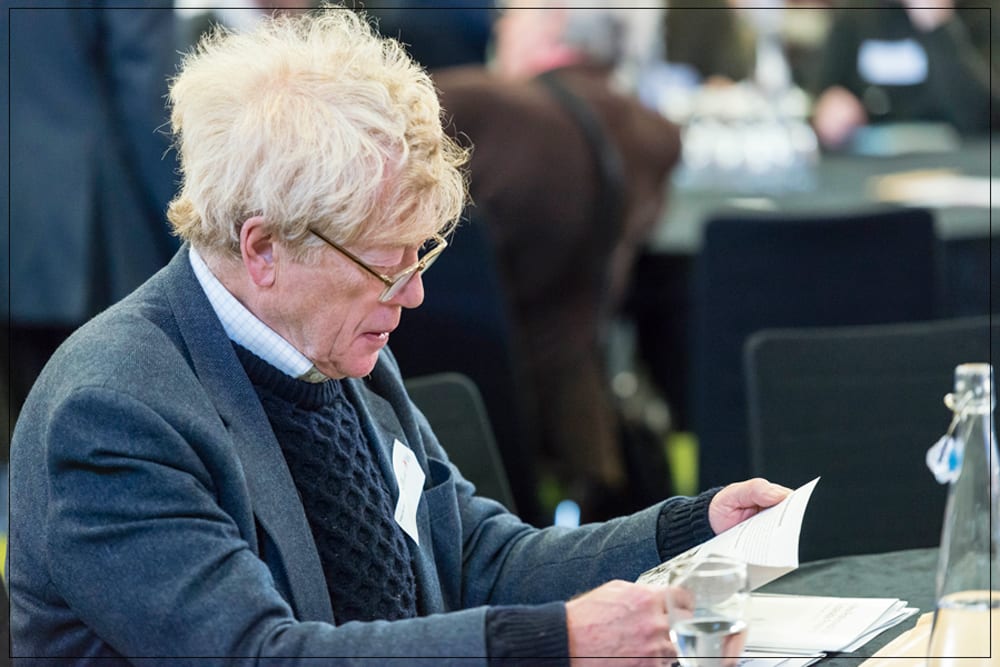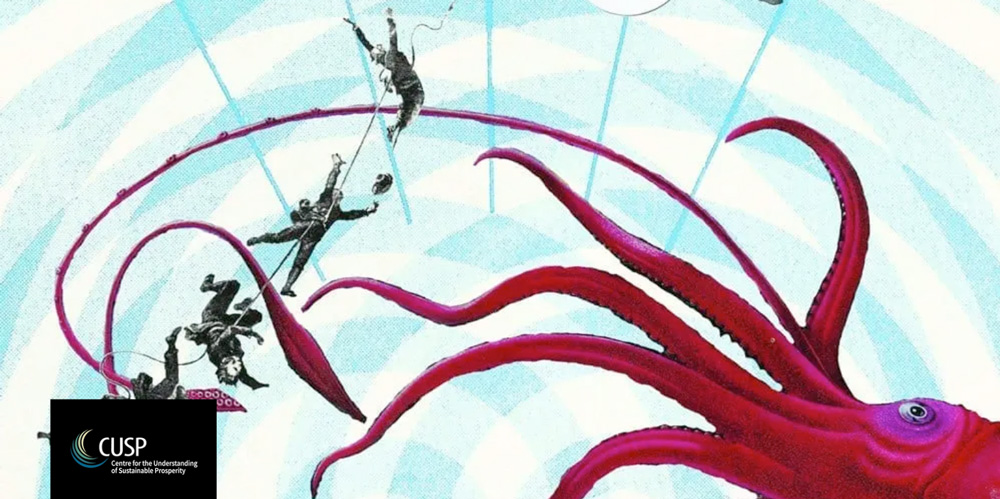Sir Roger Scruton (1944-2020)—An Appreciation
by IAN CHRISTIE

Sir Roger Scruton, who has died aged 75, was a brilliant philosopher, writer and musician. He was a polymath with a daunting range of knowledge and skills. His career spanned work as an academic, journalist, farmer, composer and entrepreneur. His philosophical work ranged across aesthetics, music, architecture, wine, sexual desire, ethics, the nature of the self and soul, environmentalism and the justification of his conservative political outlook. He was knighted for services to philosophy and education. He set up a business from his farmhouse home that he once called ‘Britain’s fastest-growing postmodern rural consultancy’. He was a leading member of efforts to give academic support to dissidents in Communist central and eastern Europe in the 1980s. His eventful life and restless mind produced a huge body of work: books, essays, lectures, novels and short stories, two operas and a charming and funny wine column for the New Statesman. Roger was a friend and inspiration to many people, like me, who shared few of his political positions and even recoiled from some of them, just as he was to people around the world who endorsed his distinctive conservative worldview. In mourning him as a friend, I am glad to offer an appreciation of him for CUSP, for which he wrote a characteristically elegant and clear essay in our series on the morality of sustainable prosperity.
Roger’s books, essays and lectures form a remarkable body of work in philosophy, memoir and cultural critique. He was a tremendously gifted writer. His introductions to thinkers such as Kant and Spinoza are exemplary. His overviews of Western philosophy are brilliantly clear and elegant. He could write tenderly and beautifully about the countryside, church life, music, art and poetry. See for example his delightful memoirs News from Somewhere and Gentle Regrets. Few know about his fiction, but he was an accomplished and experimental writer of short stories and he published several novels. His range of reference and knowledge in European and Middle Eastern history, high culture and philosophy was astonishing. But he was more attentive to popular culture than he liked to let on, as hinted at for example in the apparently approving comment in his book Understanding Music on a song by the heavy metal titans Metallica.
His political and cultural opponents, and some of his friends, found the depth, thoughtfulness and lyricism of his major writings, and his capacity for friendship, hard to reconcile with his combative and sometimes outrageously provocative journalism. He issued sweeping denunciations of ‘the Left’ and of modern life. He felt ostracised and exiled from mainstream academic work on account of his conservative politics, and the sense of grievance and persecution never left him. In some ways he went looking for trouble. However, at times he was right to feel demonised and misunderstood by many liberal-left people—as in the case of the depressing episode last year when an interview he gave to the New Statesman was edited to distort his comments and give an impression of bigotry and racism. He was sacked from his role as chair of the UK Government’s Commission on beauty and the built environment, on the strength of a Twitter storm. When the distortion of his remarks came to light he was reinstated and received due apologies, but the episode cast a shadow over what was to be the last year of his life. He came out of it rehabilitated; it reflected badly on everyone else concerned. This kind of controversy gave him a sense of being a perpetual outsider, a feeling he only overcame in the final third of his life, when he achieved a sense of settling and ‘homecoming’—to the Church of England, to family life, and to the Wiltshire farm and village where he made his home.
In his writing and his work as a professional controversialist he often set himself up against a monolithic ‘Left’. Social democrats seemed to be on the same spectrum—or more accurately on the same slippery slope—as the Marxist intellectuals and Communists who had caused and supported so much misery and violence worldwide in his youth, and against which he put himself on the line in supporting dissidents in Czechoslovakia during the latter years of the Cold War, helping bring in academic texts and giving underground seminars. But he also cultivated links and friendships with people of the Left with whom he could share an agenda—above all concerning environmental care, localism and the conservation of heritage. A striking example was his work in the late 1990s and early 2000s with Ken Worpole and Anthony Barnett in setting up the Town and Country Forum, a network of thinkers and practitioners across the political spectrum concerned with the future of the countryside and town-county relations in the UK. This produced an enduringly relevant collection of essays, Town and Country, edited with Anthony Barnett (1998). In some ways in his latter decades he was much closer to ‘Blue Labour’ or ‘Red Tory’ communitarians than he was to the ideas and policies of the 21st century UK Conservative Party; and he was always in tension with neoliberal ideology and policy.
Roger’s philosophy of conservatism is perhaps the most comprehensive and impressive attempt in our time to explain and justify that tradition of political thought and practice. He was deeply influenced by Burke: his political philosophy was one based on Burkean respect for tradition and the ‘small platoons’ of civil society. He valued caution, acceptance of incremental change, compromise and consensus-seeking, and he emphasised the importance of commitment to relationships in local and national communities of membership. He was sceptical about internationalism in politics and economics, and resolutely opposed to centralist state planning, which he associated always with the regimes he’d experienced in his visits to Communist Europe.
He acknowledged the tension in modern conservatism between the localist and communitarian vision inherited from Burke, and the embrace of free-market ‘neoliberalism’ by the Right over the past 40 years. He wanted to endorse enterprise and freedom, but also saw the damage done to community and traditional forms of life by the onrush of capitalist development and commodification. His CUSP essay reflects his enduring concerns with settlement and conservation, and makes an attractive case for these aspects of a small-c conservative philosophy of sustainability. His key idea was that of oikophilia—love of home—as the foundational motivation for care for the environment and a shift to sustainable ways of life.
The critiques offered by CUSP researchers of his paper sum up well the problems he faced in developing his conservative philosophy. Malaika Cunningham draws attention to the lack of a feminist perspective—to which he was not inimical—in Roger’s account. Victor Anderson points out that environmental challenges require a bigger internationalist vision of what counts as ‘home’ than Roger’s essentially local and national story about belonging and love of place. Indeed, Roger’s own life and sympathies offered a striking refutation of a narrow interpretation of identity and membership. Roger was an oikophile in relation to his village and his nation (or, perhaps better, his ideal type of a vanishing England); but he was also ‘at home’ in Prague; for a time in Virginia; and in the many gatherings of students, academics and writers with whom he communed around the world. Like him, we can find ourselves at home in many places beyond our neighbourhood and nation; by the same token we can find neighbours and recognise our fellows in many forms beyond our immediate world. We can mourn not just what is lost or at risk where we love, but also in places that we shall never see but care about nonetheless. An oikophile philosophy that builds on his work needs to reflect and account for what he himself embodied, namely a kind of ‘rooted cosmopolitanism’.
His account of modernity, as Will Davies says, is limited by his failure to spell out at length and in detail how to do what Roger saw as necessary—to tame capitalists and ensure that negative environmental and social externalities are internalised by those who would otherwise impose them on the rest of us. How, if not mainly by a regulatory state or set of public actors at national and/or transnational level? Capitalism is corrosive of the moral, social and environmental systems that it depends on. Roger acknowledged this, but did not develop a version of his theory of conservatism that dealt fully with the challenge of globalised capital and the nihilistic tendencies in neoliberalism.
These criticisms are important, but all the same there is great value in Roger’s account, in his CUSP essay and in a comprehensive form in his book Green Philosophy, of a conservative approach to environmental ethics and action. Over the past 2-3 decades it has been a political disaster, in the USA and Australia and beyond, that the political right has treated environmental thought and action with indifference or hostility, as the preserve of the liberal Left and Greens. Any full-scale political and societal attempt at transition to sustainable civilisation will need support from a centre-right and conservative vision of environmental care and sustainable prosperity. For all the limitations of oikophilia as it was outlined in Roger’s philosophy, there is no denying the force of his argument that motivating environmental care and action must relate in a substantial way to our local place and love of home. Access to a local natural environment that we care about can stimulate changes in our consumption towards ‘pro-environmental’ living. Roger’s work is the most substantial attempt in our time to produce a philosophy of conservative environmentalism. It needs to be developed.
Oikophilia, the duties of local neighbourliness, association and membership, and the virtues demanded by ecological stewardship, all came together for Roger and his family in life on his farm in Wiltshire, which he dubbed ‘Scrutopia’. Anyone visiting him there felt the warmth, charm and seriousness of his commitment to oikophilia. The ethics, aesthetics and practice of small-c conservatism never seemed so appealing. But can the ideas and practice of Scrutopia possibly have anything to say for the many as well as for the happy few with the resources Roger could draw upon?
Perhaps they could. The UK Conservative Party has been remade by the 2016 EU referendum and the 2019 general election. It now seems to be moving away from its neoliberal fixations in favour of a more interventionist economic policy that places more emphasis on local renewal, small and medium business and agri-environmental public goods than on big business and globalised financial capitalism. In his 2017 book Where We Are: the state of Britain now, Roger sketched at the end a case for precisely such a programme of conservative interventionism. Whether a coherent post-neoliberal Conservative ideology—one that takes ecological limits and social justice seriously—can be developed under Boris Johnson remains to be seen. But those trying to achieve this will find resources in Roger’s body of work on the philosophy of conservatism, pointing to the need for careful balancing of liberty with communitarian obligations and bonds across the generations. An early sign of his potential influence is the enthusiasm of the conservative intellectual and social entrepreneur Danny Kruger, newly elected Conservative MP for Devizes—see his tribute to Roger.
There is another sign that benign Scrutonian ideas could be finding a wider audience. Roger was appointed to chair (and then co-chair during his final illness) the UK Government’s commission on Building Better, Building Beautiful. The commission, which reports this year, was charged with examining how the built environment can be made more appealing, enjoyable and liveable via reforms to housing policy and the planning system. Roger took on what turned out to be his last project with energy and imagination, and reached out across the political spectrum to draw in ideas and evidence. If ministers take the Commission’s forthcoming report seriously, we could see a radical rethinking of the politics and policy of home, place-shaping and construction. A strategy for sustainable oikophilia in housing and planning policy and practice would be a radical and welcome departure in UK politics. It could generate support from Left and Greens and well as from parts of the Right.
We shall see. Whatever is to come, we should continue to read, learn from, disagree and argue with Roger Scruton, an immensely gifted thinker and writer. RIP.



